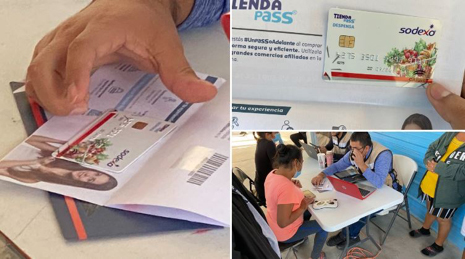Texas Immigration Law in Place for Now
[Update: The Supreme Court Monday evening put the Texas law on hold until at least March 13.]
On February 29, Judge David A. Ezra, writing for the U.S. District Court for the Western District of Texas, issued a preliminary injunction to stop the State of Texas from enforcing Texas Senate Bill (SB) 4, which made certain illegal-immigration-related offenses a state crime. Notably, SB 4 criminalized unlawful border crossings into Texas, consistent with the federal law criminalizing the same conduct.
Texas immediately appealed this decision to the Fifth Circuit Court of Appeals, which over the weekend put a hold on the lower court’s injunction. The appeals court said it was ordering an “administrative stay” to allow the law to go into effect while Texas appeals the lower court’s decision. The appeals court, however, delayed its administrative stay’s effect for one week to allow the federal government to appeal to the U.S. Supreme Court.
Some experts speculate that this case may provide a pathway for the Supreme Court to reconsider its decision in Arizona v. U.S.
The Texas law was challenged by the U.S. Department of Justice (DOJ) in January, which argued that the law was preempted by federal law. The Supremacy Clause of the U.S. Constitution established that federal law generally takes precedence over state laws and prohibits states from interfering with federal authority. The challenge was also joined by two migrant advocacy organizations and the County of El Paso, Texas, which claims that SB 4 will strain its law enforcement resources.
Specifically, SB 4 made it a state crime for an alien to “enter[] or attempt[] to enter [Texas] directly from a foreign nation at any location other than a lawful port of entry” (Texas Penal Code § 51.02(a)). SB 4 provides that it is an affirmative defense to this crime if the alien has been granted an immigration benefit, including asylum or “lawful presence” by the federal government. Violations of this section are Class B misdemeanors under Texas law.
Moreover, SB 4 makes it a crime for noncitizens to “enter[], attempt to enter”, or be found in Texas after they have “been denied admission to” or removed from the United States or departed the United States while an order of “removal is outstanding”. Violations of this section are Class A misdemeanors under Texas law. Certain prior offenses may either elevate violations of § 51.03 to second- or third-degree felonies, depending on the circumstances.
Notably, SB 4 also authorized Texas judges to issue an order in the judgement of the case requiring a convicted alien to “return to the foreign nation from which the person entered or attempted to enter”. An order issued under this section must include transportation to the port of entry and require a state law enforcement officer or agency to monitor and report compliance with the order within seven days. Failure to comply with the removal order is an additional second-degree felony.
Texas argues that SB 4 should be upheld because it mirrors, not conflicts with, existing federal immigration laws. For example, federal law at 8 U.S.C. § 1325 criminalizes improper entry by an alien into the United States. This statute imposes fines and imprisonment to aliens who “enter[] or attempt[] to enter the United States at any time or place other than as designated by immigration officers, or eludes examination or inspection by immigration officers, or attempts to enter or obtain entry to the United States by a willfully false or misleading representation or the willful concealment of a material fact”. This federal statute also criminalizes marriage fraud and immigration-related entrepreneurship fraud for the “purpose of evading any provision of the immigration laws”.
Additionally, federal law at 8 U.S.C. § 1326 imposes criminal penalties to aliens who are “denied admission, excluded, deported, or removed or [have] departed the United States while an order of exclusion, deportation, or removal is outstanding, and thereafter enter, attempt[] to enter, or is at any time found in, the United States”, with limited exceptions. Aliens convicted under 8 U.S.C. § 1326 shall be fined or imprisoned, up to 10 years, or in some cases, as long as 20 years if that alien violates this statute subsequent to a conviction for commission of an aggravated felony.
To ensure SB 4 did not criminalize conduct that was not already criminal under federal law, SB 4 also provided that if the alien’s conduct does not constitute a violation of 8 U.S.C. § 1325(a) (the federal statute criminalizing improper entry by an alien into the United States), that would be an affirmative defense to prosecution under the Texas statute. Furthermore, SB 4 provided that a grant of lawful presence, asylum under 8 U.S.C. § 1158, or deferred action under the Deferred Action for Childhood Arrivals (DACA) program by the federal government would also be considered an affirmative defense to prosecution.
Texas also argued that the Supreme Court, in Arizona v. United States, 567 U.S. 387 (2012), only found that immigrant registration to be “field preempted”. A state law is “field preempted” by a federal statute if the federal government has so “occupied the field” of an area of law that states may not interfere because it is considered “an area the Federal Government has reserved for itself”.
In that case, the State of Arizona unsuccessfully defended its 2010 bill, SB 1070. There, the Supreme Court found that the bill conflicted with the federal alien registration requirements and enforcement provisions already in place and usurped the federal government’s discretion in the removal process. Texas, in this case, argued that SB 4 was not “field preempted” by the Supreme Court’s decision in Arizona because it does not impose any requirements on immigrant registration.
Texas also argued that the orders issued by state judges to return migrants to ports of entry should not be considered “removals” as understood under Title 8 (federal immigration law). Removal orders issued by the federal government are generally issued by immigration judges and impose specific immigration consequences on the affected alien that a Texas judge’s order cannot impose. Instead, Texas asserts that the orders require “an officer [to] escort the alien to a port of entry”. Moreover, Texas argued that “field preemption” could not apply to this case because the federal government has “abandoned” the role of immigration enforcement.
Judge Ezra did not find Texas’ arguments to be persuasive, relying heavily on the Supreme Court’s decision in Arizona v. United States, and earlier jurisprudence governing preemption. The court also referenced numerous examples of the federal government engaging in immigration enforcement and exercising its removal authority to dismiss Texas’ assertion that the federal government has “abandoned the very field it purports to now occupy”. The court noted that, “From May 2023 to November 2023, DHS ‘removed or returned over 400,000 aliens’, the vast majority at the southwest border.” The court also emphasized the role that immigration policy plays in foreign affairs to further support its conclusion that the authority to remove aliens from the United Sates fall solely with the federal government.
Judge Ezra also concluded that the Texas judge’s orders requiring law enforcement to transport migrants to ports of entry, under SB 4, were “removal orders” given the consequences the bill imposes on aliens who refuse to leave the country. While Texas conceded that, “Effectuating any forced removal from the country remains the task of federal CBP officers,” Judge Ezra believed it “was absurd to argue … that [Texas] DPS officers are not ‘forcing’ the [aliens] to cross”.
Texas Gov. Greg Abbott issued a statement to defend SB 4 immediately after Judge Ezra issued his ruling on February 29. Abbott declared that, “Texas will immediately appeal this decision, and we will not back down in our fight to protect our state — and our nation — from President Biden’s border crisis. The President of the United States has a constitutional duty to enforce federal laws protecting States, including laws already on the books that mandate the detention of illegal immigrants. Texas has the right to defend itself because of President Biden’s ongoing failure to fulfill his duty to protect our state from the invasion at our southern border. Even from the bench, this District Judge acknowledged that this case will ultimately be decided by the U.S. Supreme Court.”
If the Supreme Court does not intervene, SB 4 will take effect this month, pending a federal court decision on the merits. Some experts speculate that this case may provide a pathway for the Supreme Court to reconsider its decision in Arizona.






